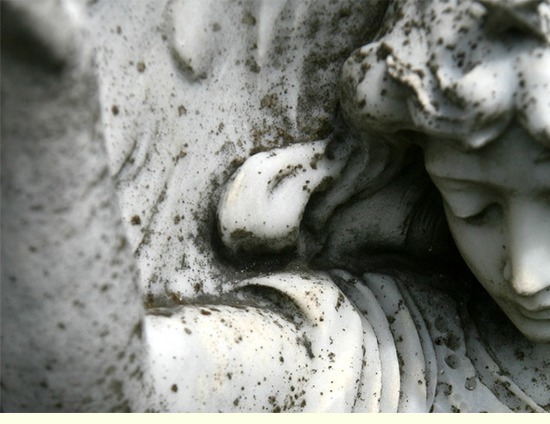"Myth is much more important and true than history. History is just journalism and you know how reliable that is." -- Joseph Campbell
A number of years ago, my family and I re-established our residence in Los Angeles from New York and found a lovely parish home nearby. I particularly enjoyed our Priest, Arnold Fenton, who invited us to his 'Inquirer's Class' so we might learn more about the Episcopal faith.
I will forever remember one class in which we discussed myth. So many in our class took the rationalistic point of view of the myth being something untrue or imaginary. We talked about the fact that most myths may be unverifiable or, quite often, fantastic, so how could they be true.
Arnold's definition of myth nailed it for me. It has has lived within me since that evening.
He stated, "It is my belief that myth is not a true story." The rationalists offered nods which stopped short as he finished with this: "Myth is a story that is true."
When those words hit my ears, I felt validated. Validated for all of my years with Æsop and the timeless stories that have hit me on a fundamental level, tales that have been a part of the fabric of mankind since the caves. Validated for the profound kinship I have felt with these enduring stories such as those around which Richard Wagner created his masterpiece, "Ring of the Niebelung". Because these and countless others have transported me into a deeper realm of the human experience, Arnold's definition: "Myth is not a true story, it is a story that is true," created in me a virtual explosion of light and my heart rejoiced.
I mentioned last week that I am thoroughly enjoying Caroline Myss' book, "Archetypes". I am also a big fan of a group of books by Robert A. Johnson, "He", "She", "We", "Owning Your Own Shadow", "Transformation" and "Inner Work." Archetypes and myths are great examples that act as gentle guides as to where to look for understanding of our human experience, not necessarily what to see.
In Johnson's book, "We", he relates a defining moment in a grammar school classroom in which the teacher asks her students the question: "What is a myth?" The young boy's answer independently echoes Arnold's definition: "A myth is something that is true on the inside, but not true on the outside."
A ripple on the pond of forever...
I find that, in our contemporary age of rationality, empirical thought, and Patriarchal leanings, my life is enriched by my frequent journeys into the mythological realm. In fact, I will go so far to say that the glory of myth lives in me vividly and is as much a part of my experience as "reality" (whatever that is). I imagine that for some, it is very easy to relegate mythology to a far away place long ago and thus isolate it from the mainstream of our life here-and-now (again, reality?).
I believe that Robert A. Johnson has said it as well as can be expressed:
"Myths are rich sources of psychological insight. Great literature, like all great art, records and portrays the human condition with indelible accuracy. Myths are a special kind of literature not written or created by a single individual, but produced by the imagination and experience of an entire age and culture and can be seen as the distillation of the dreams and experiences of a whole culture. They seem to develop gradually as certain motifs emerge, are elaborated, and finally are rounded out as people tell and retell stories that catch and hold their interest. Thus themes that are accurate and universal are kept alive, while those elements peculiar to single individuals or a particular era drop away. Myths, therefore, portray a collective image; they tell us about things that are true for all people.
"This belies our current rationalistic definition of myth as something untrue or imaginary. 'Why, that is only a myth; its not true at all,' we hear. The details of the story may be unverifiable or even fantastic, but actually a myth is profoundly and universally true. A myth may be a fantasy or a product of the imagination, but it is nonetheless true and real. It depicts levels of reality that include the outer rational world as well as the less understood inner world."
Johnson, Robert A. (2009-07-01). She . HarperCollins. Kindle Edition
Myths bathe my spirit in their timeless world.
MYTH - Here's to your glory and the profound and enduring richness you bring to my life.
